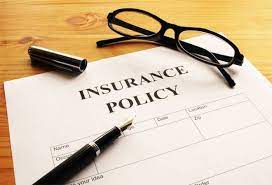A Guide To Selecting the Best Travel Insurance And Preventing Misselling
Nobody likes to worry about unanticipated costs or medical difficulties when traveling. However, travel insurance comes in helpful if such circumstances do occur since it enables you to address them without going into debt. Travel insurance may help pay the expenses if your trip is rescheduled or canceled, or if you have a medical emergency while traveling. Additionally, it offers compensation for delayed connections, mishaps on the road, and even lost bags. It guarantees that you are ready for any shocks that could occur while you are traveling.
However, there has recently been a worrying rise in misrepresentation and fraud in the sale of travel insurance. When purchasing travel insurance, a significant portion of passengers fail to do extensive research and depend only on what their agent is giving. Due to their lack of knowledge, they may be more susceptible to fraud and scams. The following are the most typical market misselling techniques:
Not providing critical information: Some agents may not provide important coverage information, including as policy restrictions or exclusions. Travelers may be led astray by this lack of transparency into thinking they are fully covered when they are not.
Selling additional coverage that is unneeded: Travelers may be persuaded to buy extra insurance or add-ons that are unnecessary. A tourist who has no plans to participate in extreme sports during their vacation, for instance, could be persuaded to get coverage from an insurance agent.
Overcharging: Travelers could be charged more than the going rate in order to take advantage of their incomplete knowledge of insurance pricing customs.
By exercising care, travelers might avoid falling prey to these traps. A few examples include:
Knowing what you’re purchasing
The first and most important step in defending your rights is to understand the tiny print of your travel insurance policy. Take the time to carefully read and appreciate the terms and conditions before agreeing to any policy. A variety of situations are often covered by travel insurance coverage, including flight cancellations, medical crises, lost luggage, and more. However, from one insurance to another, the level of protection might differ dramatically. While some insurance products give full protection, others could only offer little security. It’s critical to match the quantity of coverage you’re buying with your insurance requirements.
Ask questions and eliminate any room for uncertainty.
Don’t be afraid to ask questions and get clarity on any uncertainties you may have while buying travel insurance. Here are some important inquiries to think about:
What are the exclusions of the policy? Just as crucial as learning what is covered by your insurance coverage is knowing what is not covered.
Exist any extra riders or add-on insurance options? Some insurance plans include add-ons for niche requirements, including coverage for adventure sports or rental cars. Evaluate their applicability to your trip schedule.
What documentation is needed and how does the claims procedure work? Learn the procedures to follow in case of an emergency and what paperwork is required to submit a claim.
Shop around and consider your alternatives.
Always make it a point to look around for other possibilities when purchasing travel insurance. Otherwise, you could pass on more cost-effective choices or coverage that is more suited to your requirements. Start by online comparing the policies of several insurance. This can help you get an idea of the pricing range for the coverage you want.
Remember that the least expensive insurance may not always be the best option since it can have little coverage or large deductibles. Check the insurance provider’s reputation and track record to determine whether they have a strong reputation for paying claims on time.
Participate by providing all pertinent information.
It’s critical to be open and honest with insurers about your health, travel plans, and circumstances in order to prevent misselling. Claim rejections or disputes may result from failure to provide necessary information. Mention any current medical issues, ongoing procedures, or prescription drugs that you are taking. Even if you don’t believe a certain information is important, you should nevertheless reveal it to prevent problems in the future. Inform your insurer right away if your situation changes after you get the insurance (for example, if you become sick or decide to engage in risky activities). It’s important to retain the integrity of your coverage even if certain changes could necessitate making changes to your policy or paying more in premiums.
By exercising necessary attention and implementing certain safety precautions, you may travel wisely and safely.







